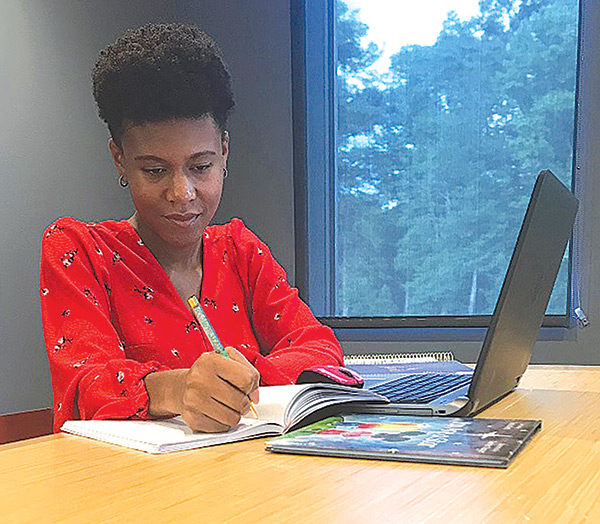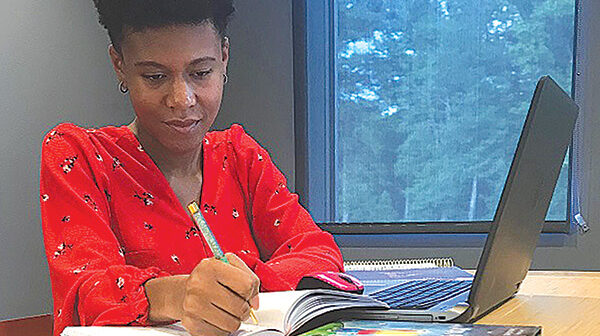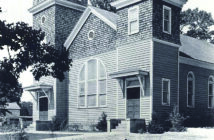
Dasha Dent had a close relationship that ended badly.
The result left her filled with doubt about who she was and wanted to be, but she decided to turn the series of events into a positive message. With the help of Kim Wells Eley, she turned her pain into a children’s book with a positive message titled “You Are a Star.”
Dent, a Chester resident, said she could have let the experience leave her with deep wounds, but instead she used it to reflect and set new goals.
“I believe everyone has a unique talent, an ability to shine, but I had let this setback dim my outlook and my future,” she said. It wasn’t helpful to hold her feelings inside. She decided that she had learned one of life’s valuable lessons, and that it was more productive to share her story in a positive way than to sulk with regrets.
In 2018, she had a vision about writing a children’s book. Writing it helped her through her life crisis. However, she had no idea how to start the process of publishing a book. Through word of mouth, she met Eley, who showed her the options and guided her through each step.
“Kim was so enthusiastic about my story,” Dent said. She laid things out for me so that I could make the best decisions.
“There’s so much information out on the Internet about writing a book that it feels like you’re drinking from a fire hose,” said Eley, who works for KWE Publishing in Prince George.
There are basically three kinds of publishing: traditional publishing, self-publishing, and hybrid publishing. Traditional publishing is when your manuscript is purchased by a publishing house. Typically, you submit a draft to different publishing houses for consideration. They read through submitted drafts and select ones to publish.
Self-publishing makes the writer responsible for all of the steps it takes to publish the book. The writer can do it alone or hire people for specific tasks, including editing, graphic design and formatting.
Hybrid publishing is another option. The writer works with a publishing consultant who tackles part or all of the publishing tasks in collaboration with the writer.
“You no longer need an agent to get published,” Eley said. “However, if you are interested in traditional publishing, it is a good idea to get an agent as they will lobby on your behalf.”
Colonial Heights publisher Diana Le Gere believes it is easier than ever to get published.
“It depends on your preferences. There are pros and cons to every method,” Le Gere said. “For instance, traditional publishing is the easiest for the writer. The publisher pays for everything upfront, but the writer gets less profit per book.” Sometimes there is an advance, sometimes not. Hybrid publishing is a marriage of traditional and self-publishing. The author pays a percentage. In this case, it’s more like a partnership. Self-publishing, of course, means the author pays for everything out of pocket and does all the work, but gets all the profit.
“My publishing company [Arabelle Publishing] offers traditional and hybrid options,” Le Gere said. “If I believe in the project, I’ll pay for all the work to get the book out.” She advises writers to do their research and find which publisher is best suited for their work. “For instance, I am really into memoirs, devotionals and Bible studies. A writer [who]would send me a romance novel is wasting [his or her]time. I’m not going to publish that.”
With traditional publishing each publisher is going to be different, Le Gere said. Some only accept manuscripts from agents. Others are open to author submissions. “Some like ideas, some want a couple of chapters,” she said.
“Again, it’s all about homework. Read the submission guidelines on the publisher’s website. In the end, even a brilliant story idea won’t be published by a terrible writer. At some point, you’re going to need to prove you’re the best candidate to write it.”
Traditional publishers are seeking a broad audience. “But if you write about a topic that a small but passionate group of people will like, self-publishing may be the best approach for you,” Eley said.
Eley and Le Gere act as consultants and will give the author as much or as little help as needed.
Publishing costs can vary. A book cover can cost upwards to $1,200, and interior formatting the same, Le Gere said. There are editors, photographers and graphic designers to pay, images to buy, ISBNs to purchase, and the list goes on. The range for total costs could be from $3,000 to $5,000.
“The one task you definitely want to hire someone else to do is to edit your work,” Eley said. “Every writer misses some mistakes and needs someone else’s expert review. A good editor is worth [his or her]weight in gold to catch errors and make your writing look polished and professional.”
Dent chose to have a consultant help her with the process. She felt like the options were too overwhelming to sort out on her own.
“Kim helped me develop a timeline to accomplish each task,” Dent said. “I wanted a hardback book to withstand being pulled in and out of a backpack. I wanted my book to last.”
Eley helped Dent share her message of healing with a broad audience in a format she could afford.
“You Are a Star” is scheduled to be published soon and will be available for purchase at Amazon.com.


